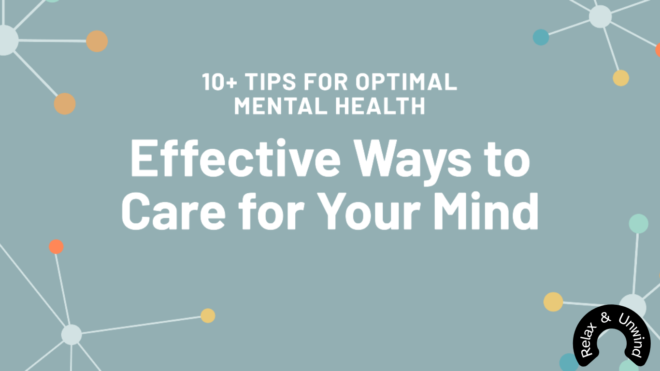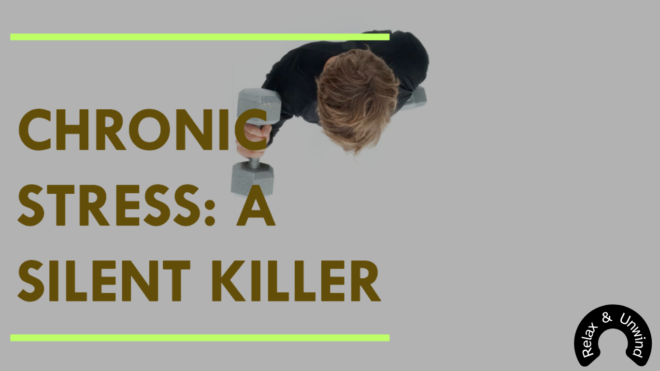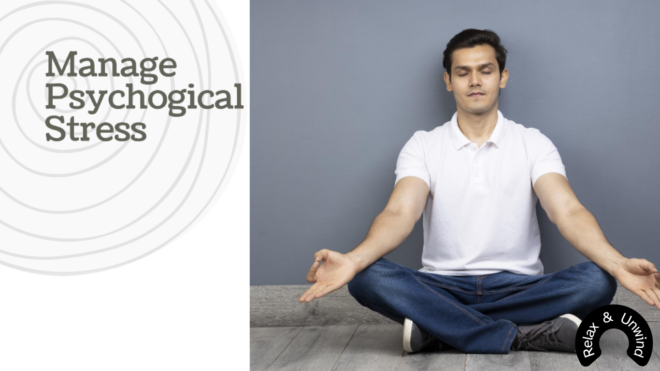Table of Contents
Take care of your mind is essential for overall well-being. Here are several effective ways to nurture and support your mental health:
Ways to Take Care of your Mind
1. Practice Mindfulness:
Engage in mindfulness exercises such as meditation, deep breathing, or mindful walking. Be present in the moment, focusing on sensations, thoughts, and feelings without judgment. Practicing mindfulness is a powerful technique to enhance mental well-being and cultivate a deeper connection with the present moment. Here are practical steps to incorporate mindfulness into your daily life:
Start with Simple Breathing Exercises: Find a quiet and comfortable space and Focus on your breath, inhaling and exhaling slowly.
Mindful Observation: Choose an object, such as a flower. Observe it attentively, noting its colors, textures, and shapes. Engage your senses fully in the experience without judgment.
Mindful Walking: Take a slow walk, paying attention to each step as well feel the ground beneath your feet and the movement of your body.
Guided Meditations: Use guided meditation apps or recordings and follow the instructions, allowing yourself to relax and be fully present.
Daily Mindfulness Reminders: Set alarms or use mindfulness apps to remind you to pause and be present throughout the day.
Start your day with a few minutes of mindfulness. Itincludes mindful breathing, setting positive intentions, or simply appreciating the quiet moments.
Remember that mindfulness is a skill that develops over time with consistent practice. By integrating these mindful practices into your daily routine, you can enhance your mental clarity, reduce stress, and foster a greater sense of well-being.
2. Establish a Routine:
Establishing a routine is a key component of maintaining a healthy and balanced lifestyle, contributing significantly to both physical and mental well-being. Here’s a guide to help you create an effective routine:
- Establish a consistent sleep schedule by going to bed and waking up at the same time every day.
- Begin your day with purposeful morning rituals that set a positive tone. Include activities like stretching, mindfulness, or a nutritious breakfast to energize your body and mind.
- Break larger tasks into smaller, manageable segments to avoid feeling overwhelmed.
- Prioritize tasks based on importance and deadlines.
- Schedule short breaks throughout the day to prevent mental fatigue.
- Establish regular meal times to maintain consistent energy levels.
- Incorporate short mindfulness breaks into your day.
- Take a moment to focus on your breath, centering yourself and bringing awareness to the present moment.
- Dedicate time at the end of the day for self-reflection. This practice promotes self-awareness and personal growth.
- Integrate self-care practices into your routine, such as taking a warm bath, reading a book, or spending quality time with loved ones.
Remember, the goal of a routine is to provide structure and balance while accommodating your individual needs. Adjustments may be necessary over time, so regularly assess and refine your routine to ensure it continues to support your overall well-being.
3. Physical Exercise:
Physical exercise is a powerful and multifaceted tool for taking care of the mind, with numerous benefits that extend beyond physical fitness. Incorporate regular physical activity into your routine. Exercise has numerous mental health benefits, including
Stress Reduction: Physical exercise triggers the release of endorphins, the body’s natural mood lifters.
Improved Mood and Emotional Well-Being: Regular exercise is associated with improved mood and a reduction in symptoms of depression and anxiety. It stimulates the production of neurotransmitters like serotonin and dopamine, which play key roles in regulating mood.
Enhanced Cognitive Function: Exercise has been linked to improved cognitive function, including better memory, attention, and problem-solving skills.
Better Sleep Quality: Physical activity helps regulate sleep patterns and promotes better sleep quality.
Stress Resilience: Engaging in physical activity regularly can enhance your ability to cope with stress.
Social Interaction: Group exercise activities, team sports, or fitness classes offer opportunities for social interaction.
Boosted Self-Esteem and Confidence: Regular exercise can lead to improvements in body image and self-esteem.
Mind-Body Connection: Activities like yoga emphasize the mind-body connection.
Brain Plasticity and Neuroprotection: Physical exercise is associated with increased levels of brain-derived neurotrophic factor (BDNF), which supports the growth and maintenance of neurons.
4. Healthy Nutrition:
Maintaining a well-balanced and nutritious diet is essential for both physical health and mental well-being. The food you eat plays a crucial role in supporting brain function, mood regulation, and overall cognitive performance. Here are key principles for incorporating healthy nutrition into your routine for optimal mind care:
Balanced Diet: Consume a well-rounded diet that includes a variety of food groups such as fruits, vegetables, whole grains, lean proteins, and healthy fats.
Omega-3 Fatty Acids: Omega-3s are associated with improved cognitive function and mood regulation.
Antioxidant-Rich Foods: Incorporate foods high in antioxidants to protect the brain from oxidative stress.
Hydration: Dehydration can negatively impact cognitive function and concentration.
Limit Added Sugars: High sugar consumption may contribute to mood swings and energy crashes.
Complex Carbohydrates: Choose complex carbohydrates, such as whole grains, legumes, and vegetables, for sustained energy levels.
Protein-Rich Foods: Include lean protein sources like poultry, fish, eggs, beans, and tofu.
Moderate Caffeine Intake
Vitamins and Minerals: Ensure adequate intake of vitamins and minerals, especially vitamin B, vitamin D, iron, and magnesium.
Mindful Eating: Practice mindful eating by paying attention to your hunger and fullness cues.
5. Connect with Others:
Connecting with others is a fundamental aspect of taking care of your mind and overall well-being. Human beings are social creatures, and meaningful relationships play a crucial role in mental health. Here’s how connecting with others positively impacts the mind:
Social Support: Meaningful connections provide a support system during challenging times. Having someone to lean on emotionally can reduce stress and enhance resilience.
Emotional Well-Being: Sharing experiences, thoughts, and feelings with others promotes emotional well-being.It allows for the expression and processing of emotions, fostering a sense of understanding and validation.
Reduced Feelings of Isolation: Connection combats feelings of loneliness and isolation.Regular social interactions create a sense of belonging and community.
Enhanced Communication Skills: Interacting with diverse individuals improves communication skills.Effective communication contributes to healthier relationships and reduces misunderstandings.
Increased Empathy: Building connections cultivates empathy and understanding for others’ experiences.Empathy enhances emotional intelligence and strengthens relationships.
Sense of Belonging: Connecting with others fosters a sense of belonging to a community or group.
Shared Joy and Celebrations: Celebrating successes and joys with others amplifies positive experiences.Shared moments of happiness contribute to a positive outlook on life.
Collaboration and Teamwork: Collaborative efforts with others contribute to a sense of purpose and achievement.Teamwork can lead to the accomplishment of shared goals.
Diverse Perspectives: Connecting with a diverse range of individuals exposes you to different perspectives and ideas.
6. Nature and Fresh Air:
Nature and fresh air play integral roles in promoting mental well-being, offering a range of benefits for the mind. Spending time outdoors and breathing in fresh air can positively impact various aspects of mental health. Here’s how nature and fresh air contribute to mind care:
Stress Reduction: Immersing yourself in natural environments has been linked to reduced stress levels.The sights and sounds of nature help activate the relaxation response, lowering cortisol levels.
Improved Mood: Exposure to natural settings is associated with improved mood and a more positive outlook.Fresh air, sunlight, and the natural environment contribute to feelings of happiness and well-being.
Enhanced Creativity: Spending time outdoors can stimulate creativity and problem-solving skills.Nature provides a conducive environment for novel thinking and fresh perspectives.
Increased Energy Levels: Fresh air and outdoor activities enhance oxygen intake, leading to increased energy levels.Physical activity in natural settings can boost vitality and combat feelings of fatigue.
Better Concentration and Focus: Time in nature has been shown to improve attention and concentration.Exposure to green spaces can enhance cognitive function and mental clarity.
Mindful Awareness: Being in nature promotes mindfulness and a sense of presence. Paying attention to the sights, sounds, and sensations in the natural environment fosters a mindful state.
Strengthened Immune System: Spending time outdoors and breathing fresh air can have positive effects on the immune system.Improved immunity contributes to overall well-being, including mental health.
Positive Impact on Self-Esteem: Outdoor activities and exposure to natural beauty can positively impact self-esteem.Accomplishing physical challenges in nature contributes to a sense of achievement.
Social Connection in Natural Settings: Shared outdoor activities provide opportunities for social connection.Enjoying nature with others strengthens relationships and provides a supportive environment.
7. Set Boundaries:
- Establish healthy boundaries to protect your time and energy.
- Learn to say no when necessary to avoid overwhelming yourself.
8. Engage in Relaxation Techniques:
- Practice relaxation techniques such as progressive muscle relaxation or guided imagery.
- These methods can help alleviate stress and promote a sense of calm.
9. Limit Screen Time:
- Reduce exposure to screens, especially before bedtime.
- Excessive screen time can impact sleep quality and contribute to mental fatigue.
10. Continuous Learning:
- Keep your mind active and engaged through lifelong learning.
- Explore new hobbies, read books, or take up activities that stimulate your intellect.
11. Express Yourself Creatively:
- Engage in creative pursuits such as art, writing, or music.
- Creative expression can serve as a therapeutic outlet for emotions.
- Cultivate a positive mindset by focusing on gratitude and positive affirmations.
- Challenge negative thoughts and replace them with constructive and optimistic ones.
12. Seek Professional Support:
- If needed, don’t hesitate to seek help from mental health professionals.
- Therapy or counseling can provide valuable tools and support for managing mental health.
13. Limit Alcohol and Substance Use:
- Be mindful of the impact of alcohol and substance use on mental health.
- Seek support if you find yourself relying on substances to cope with stress.
Taking care of your mind is a holistic process that involves a combination of self-awareness, self-care practices, and seeking support when needed. Incorporating these strategies into your daily life can contribute to a resilient and thriving mental state.
FAQs
How can mindfulness help with stress reduction?
Mindfulness promotes awareness and acceptance, reducing the impact of stressors. It encourages a non-judgmental focus on the present moment, fostering resilience and mental well-being.
Is there a connection between nutrition and mental health?
Absolutely. Nutrient-rich foods support cognitive function, mood regulation, and overall mental well-being. A balanced diet contributes to a healthy mind.
Can creative activities really improve mental health?
Yes, engaging in creative pursuits has therapeutic benefits. Creative expression provides an outlet for emotions, reduces stress, and enhances overall mental health.
What signs indicate the need for professional mental health support?
Persistent feelings of sadness, anxiety, or difficulty functioning in daily life may indicate the need for professional help. It’s essential to seek support when mental health challenges persist.
Can gratitude practices really change my mindset?
Yes, practicing gratitude can shift your mindset by focusing on positive aspects of life. It promotes a sense of appreciation, reducing stress and contributing to overall mental well-being.


